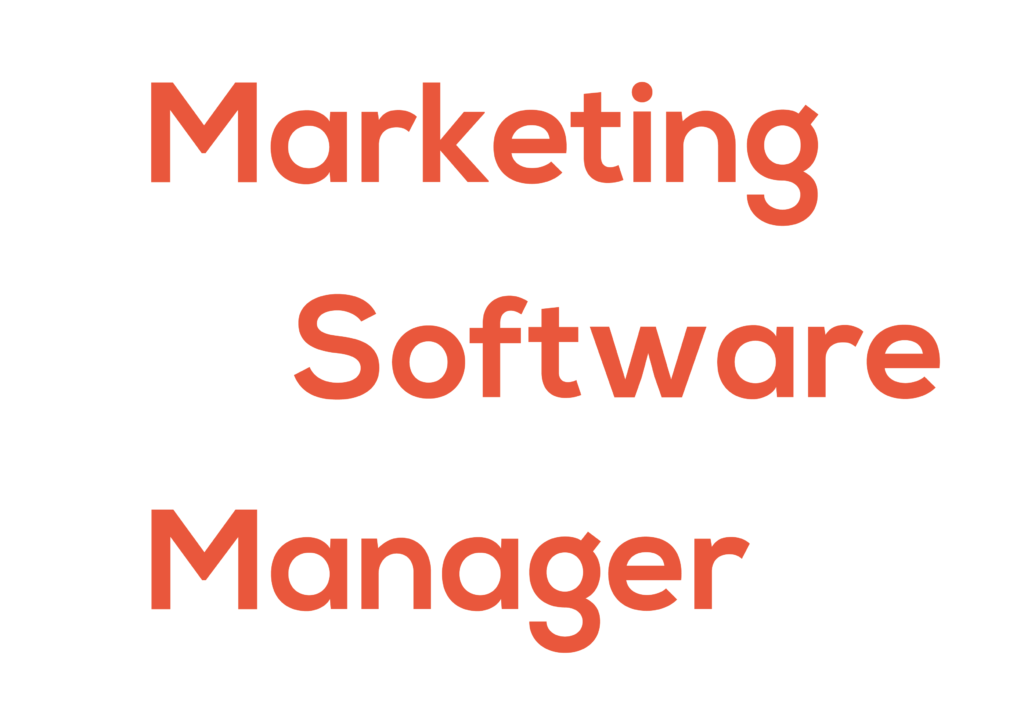Looking for SEO tips to kick-start your search engine optimisation efforts? Then you’ve come to the right place!
Search engine optimisation has often been viewed upon as some shady dark art – something Severus Snape may have taught if he were to become a teacher in the Muggle realm.
But SEO is no longer the misunderstood acronym it used to be. Website builders, new start-up founders and SME owners understand why it’s important and have a general idea what goes into making a website that will rank well in search engines.
If you fall into one of those categories then, to get you started on your way to SEO stardom, here are 30 SEO tips to start working through for your website!
FYI, some links in this article may be an affiliate link. If you do decide to make a purchase, we may receive a small commission as a result – at no cost to you. This helps us continue to run the website.
Know what you’re optimising for
You can’t start any SEO project without knowing what it is you want to rank for in the first place. Use tools like Ubersuggest and Google AdWords keyword research tool to find search terms relevant to your website and how many people are searching for them each month.
Don’t always pick the keyword with the highest search volume
It can be tempting to target keywords with the highest search volume when conducting your keyword research. But these will be the most difficult to rank for and the most competitive. Instead, look for more specific alternatives that may be easier to rank for, but still hold high monthly search volume.
For example, instead of trying to rank for ‘car insurance’, try ‘best car insurance for young drivers’ or ‘best car insurance for sole traders’ etc.
Find long-tail opportunities
Another keyword research tip is to look out for long-tail opportunities. These tend to be questions for which you can form a blog post of highly-specified landing page around. Using our car insurance example again, terms could include ‘best car insurance for new drivers’ or ‘how to reduce car insurance premiums’.
Sometimes, long-tail keywords aren’t always from ‘primed to buy’ users, but they’re an opportunity to bring potential customers to your site and convince them that you have the solution to their query or problem.
Create an SEO map of your website
Once you’ve researched and selected your target keywords, create a map of your website and what pages you want to target these search terms on. It’s impossible to rank for everything on one page, and it’s far easier to rank for a single keyword by having a page dedicated to it.
Ensure your site is just as good on mobile
Fast, responsive websites rank better than old-school sites that only care about catering for a desktop user. Most website builders come prepared for a mobile-ready experience, but check that it loads fast, buttons are nicely spaced and it’s easy to navigate on mobile as your site should be on desktop.
Install an SSL certificate
This is a no-brainer for website SEO. Google specifically says it looks at factors such as having an SSL certificate as a ranking factor. They can cost around £60 a year, but it’s best to get that sorted now than further down the line.
Include your target search term in the URL
It’s a lot easier to rank for a keyword if you include that keyword in the URL of a page. Google has got a lot better at understanding what a page’s content is about without having to be so specific but, it’ll be easier to rank for ‘car insurance for young drivers’ if your page url is yourwebsite.com/car-insurance-young-drivers instead of yourwebsite.com/page5.
And your first line / paragraph
When you’re optimising your webpages, make sure to include your target search term in the first line, or at least the first paragraph. This not only helps indicate to search engines that your page is relevant to a search query, but it also helps to give users exactly what they’re looking for.
Optimise title tags
Your title tag is the title of your page that appears in search results. Make sure your target search term is included in your title tag, and look to increase click-through-rates by including persuasive call-to-actions.
And don’t forget meta descriptions
Like title tags, meta descriptions appear in search engine results pages too. Make sure your target search term appears here as well as informative copy to persuade clicks to your page instead of competitors.
Image titles and alt tags matter too
Search engines can’t see an image when they crawl your page, but they can read the image file name and alt tag. Include your search terms in both of these to help the likes of Google know that the image is relevant to what users are searching for.
Include keywords in page titles
Your page titles, also referred to as H1s, H2s, H3s and so on, are prime real estate that need include your target search terms as well as variations of them. Your main page title, the H1, definitely needs your target search term in there. But try and include it in your subheadings too!
Aim for about 10 keyword mentions per 1,000 words
There’s a fine balance to be struck between keyword stuffing and not including your keyword enough to rank a piece of content or landing page. The usual formula I try and stick to is 1 keyword mention per 100 words, or 10 per 1,000.
Reduce your image file sizes
Page load speed is a key ranking factor for Google, and one of the easiest ways to improve your page loading speed is by reducing image file size. If you’re using WordPress, there are plugins that will automatically do this for you on the fly.
A simple way to do this is to only upload images at the size needed. A little 400px x 400px graphic on a landing page doesn’t need to be a 2MB 5000px super sharp image!
Have a clear website structure
Clear website structures don’t just help users navigate your site, it helps search engines better understand your content too.
The simplest way to create a clear site structure is within URLs. For example, instead of having yourwebsite.com/service1 and yourwebsite.com/service2, have yourwebsite.com/services/1 and yourwebsite.com/services/2.
Make sure your pages are indexable
A mistake that far too many marketers make when launching a new website is forgetting to turn off no indexing! This can sometimes be turned off by web devs so that the work-in-progress version of your site doesn’t start turning up in search results. But if you forget to tell Google that it can start crawling your site, it will never rank!
Right-click on your website and click ‘inspect source’. Do a quick search for ‘index’ and see where it says no index or indexable.
Check your sitemap and submit it to Google
An XML sitemap is really key to ensuring all pages of your site get crawled and indexed by search engines. Most website builders will automatically create one for you. Once you’ve created/found yours, submit it to Google within Google Search Console.
Track your keyword rankings
How can you tell if all your optimisation and off-site SEO efforts are working? By tracking your keyword rankings!
Keyword ranking software such as SEMrush and Accuranker will check the position of your keyword rankings daily and show progress over time. Using software also helps to analyse how your ranking in different countries or geo-specific zones, such as your local area.
Here’s a comparison of some of the different keyword tracking software options available, and here’s a look at how to track keyword rankings.
Don’t forget Bing traffic
Bing carries a 6% market share of search engine activity globally. That doesn’t sound much, and many digital marketers don’t bother with it. But a decent chunk of your organic traffic may be coming from Bing – something you can see in your Google Analytics.
Tracking Bing rankings is particularly beneficial in competitive niches, especially if you’re planning on running some paid ads. Yes there’s less potential traffic on Bing, but likely fewer advertisers too. Cheap clicks are calling!
Write relevant blog content
Content is king in the eyes of Google. Original blog content is a great way to signal to search engines that your site is relevant, trustworthy and worthy of ranking. But content does more than just sending positive signals to search engines. A great content strategy can fill your social media channels, generate citation backlinks and form the initial entrance to your website for potential future customers.
Sign-up to industry websites
A great way to start building some authority for both your brand and website is to sign-up to industry websites. This can sometimes cost a bit of money in annual membership fees, but the links these sites generate can be really powerful and give your website a leg-up in search results.
Analyse your competitors best backlinks
Not sure where to begin with building backlinks? The best place to start is often with your competitors. Using tools such as SEMrush or OpenLinkProfiler, you can paste the URL of your competitors and analyse a good chunk of their backlink portfolio. From here, you can see their strongest links and try to replicate them!
Create internal links
Internal website links are almost as important as external links to search engines, and they’re far easier to create! Internal links within blog posts are a great place to start linking out to your key landing pages and begin building some page authority in the absence of killer external backlinks. Just remember to make sure they’re relevant and actually aid the user experience.
Focus on your ‘almost there’ pages
Using your keyword tracking software, take a look at which search terms and pages are ranking on page two of search results. These are your ‘almost there’ pages. They probably won’t be picking up much traffic right now – after all, page two of Google search results is the best place to hide a body – but focusing on these pages by adding more content and creating some additional internal links can tip you over the edge onto page one.
Keep an eye on your domain authority
Domain authority is a metric which scores your overall site strength in the eyes of search engines. It’s not strictly something which search engines take much notice of, but it is a useful number for SEO marketers to track as it typically gives a good indication as to how easy it will be to rank content and landing pages in search results.
Create evergreen content
Creating content that will always be relevant and carry a steady stream of traffic to your site is always beneficial to both traffic generation and acquiring backlinks. This type of content is called evergreen content.
Create citation-worthy research-led articles
One of the most effective ways I’ve found of generating natural backlinks into blog content is creating research-rich articles. Other blog writers when looking for research to back-up their points will find your articles and link to it as a citation.
Run a digital PR campaign
Digital PR is not only great for some initial brand awareness, but it’s also highly effective at generating powerful backlinks from PR news aggregators and media sites too.
Use Google Alerts to track mentions of your brand and monitor where you’re being mentioned. If the news coverage hasn’t linked to your site, reach out to that organisation and request adding one in!
Analyse everything in Google Analytics
You cannot improve what you don’t measure, and whilst keyword ranking software will tell you how your site is performing in search engines, Google Analytics will show you the fruits of your labour. Make sure you monitor bounce rates in particular.
If you’re bringing lots of traffic into your site for blog content but those users aren’t exploring the rest of your site, add internal links or marketing panels directly into your blog content to turn those interested users into fully paid-up customers over time.
Be consistent with linkbuilding efforts
Google’s official advice is to not build links, but for new websites, in particular, it’s going to be hard to get noticed or earn natural content reference links without getting your site some visibility in the first place.
The key then for your linkbuilding efforts is to be consistent. If you blast a load of directory links in month one of site launch, do nothing for a few months then go again, that’s going to look spammy.
The best approach is always steady consistency. Aim for 5-10 fresh ‘built’ links a month to get your site to a point where you do start picking up citation links for your articles.
SEO tips – conclusion
There’s so much you need to do to really get to grips with search engines, rankings and website optimisation to start generating mass organic traffic. But follow these SEO tips and you’ll be well on your way to search engine dominance!
Searching for the best SEO software for your marketing team? Discover and compare the leading providers, including their functionality and pricing, all in one place right here.











